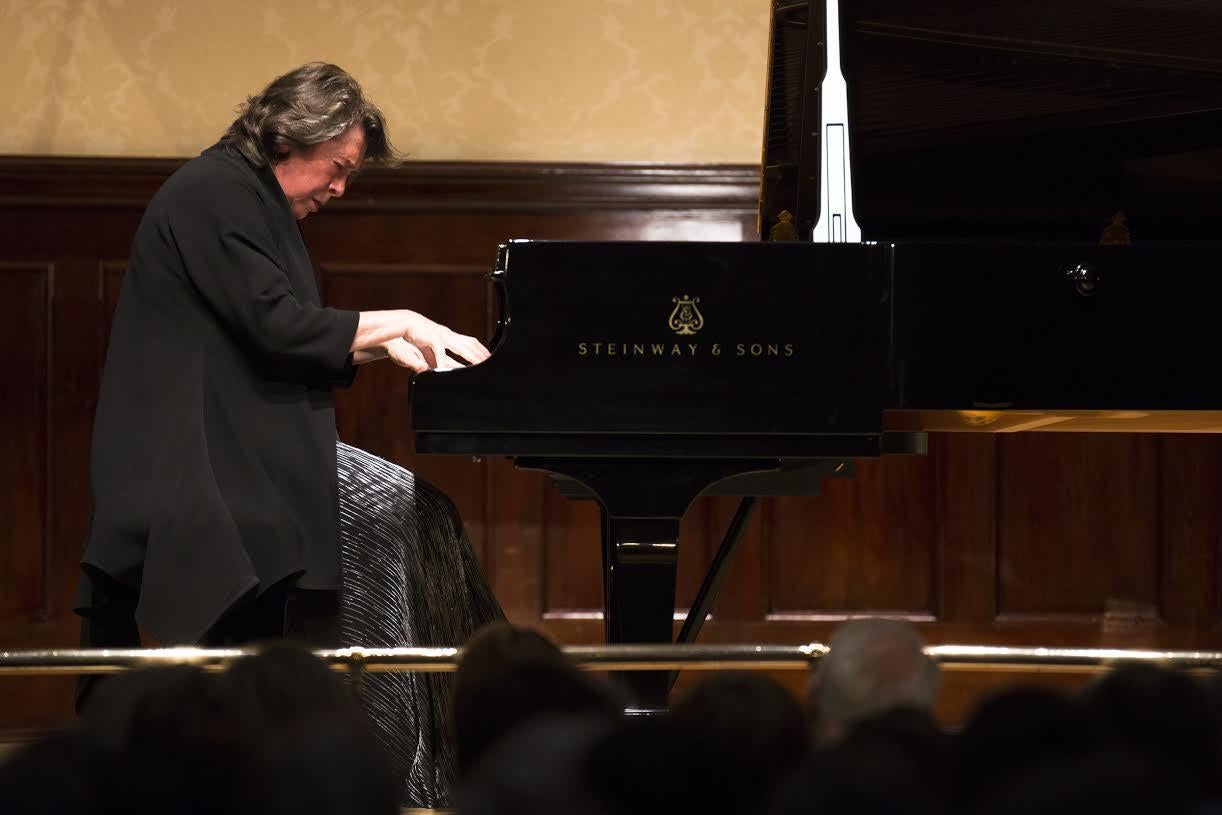Wigmore Hall's 115th anniversary with Elisabeth Leonskaja - classical review: an evening of the music of their patron saint, Franz Schubert
Never was private wealth better employed in the service of public culture

Your support helps us to tell the story
From reproductive rights to climate change to Big Tech, The Independent is on the ground when the story is developing. Whether it's investigating the financials of Elon Musk's pro-Trump PAC or producing our latest documentary, 'The A Word', which shines a light on the American women fighting for reproductive rights, we know how important it is to parse out the facts from the messaging.
At such a critical moment in US history, we need reporters on the ground. Your donation allows us to keep sending journalists to speak to both sides of the story.
The Independent is trusted by Americans across the entire political spectrum. And unlike many other quality news outlets, we choose not to lock Americans out of our reporting and analysis with paywalls. We believe quality journalism should be available to everyone, paid for by those who can afford it.
Your support makes all the difference.Celebrating its 115th anniversary, Wigmore Hall in London gave loyal supporters an evening of the music of its patron saint, Franz Schubert. And no better way of kicking things off than with Elisabeth Leonskaja playing Schubert’s greatest piano sonata, the B flat D 960, which casts a serenely valedictory light on all the works that preceded it. Born and raised in Georgia, Leonskaja trained in Moscow, when Soviet pianism was at its apogee – Sviatoslav Richter was her mentor. She brings a unique weight and power to her Schubert, and here she was on top form, giving every phrase telling force.
Next came Cuarteto Casals, playing the late String Quartet in G, with the precision and grace for which they are famed: their playing had that persuasiveness that results from absolute unity in both intonation and intention.
Then it was song, with James Baillieu presiding at the piano. All the young singers acquitted themselves with distinction – soprano Mary Bevan, mezzo Tara Erraught, tenor Allan Clayton and baritone Henk Neven. And here’s a thing: one realised that almost everyone on stage had been spotted and nurtured by that uniquely canny artists’ charitable agency, the Borletti-Buitoni Trust.
Never was private wealth better employed in the service of public culture.
Join our commenting forum
Join thought-provoking conversations, follow other Independent readers and see their replies
Comments